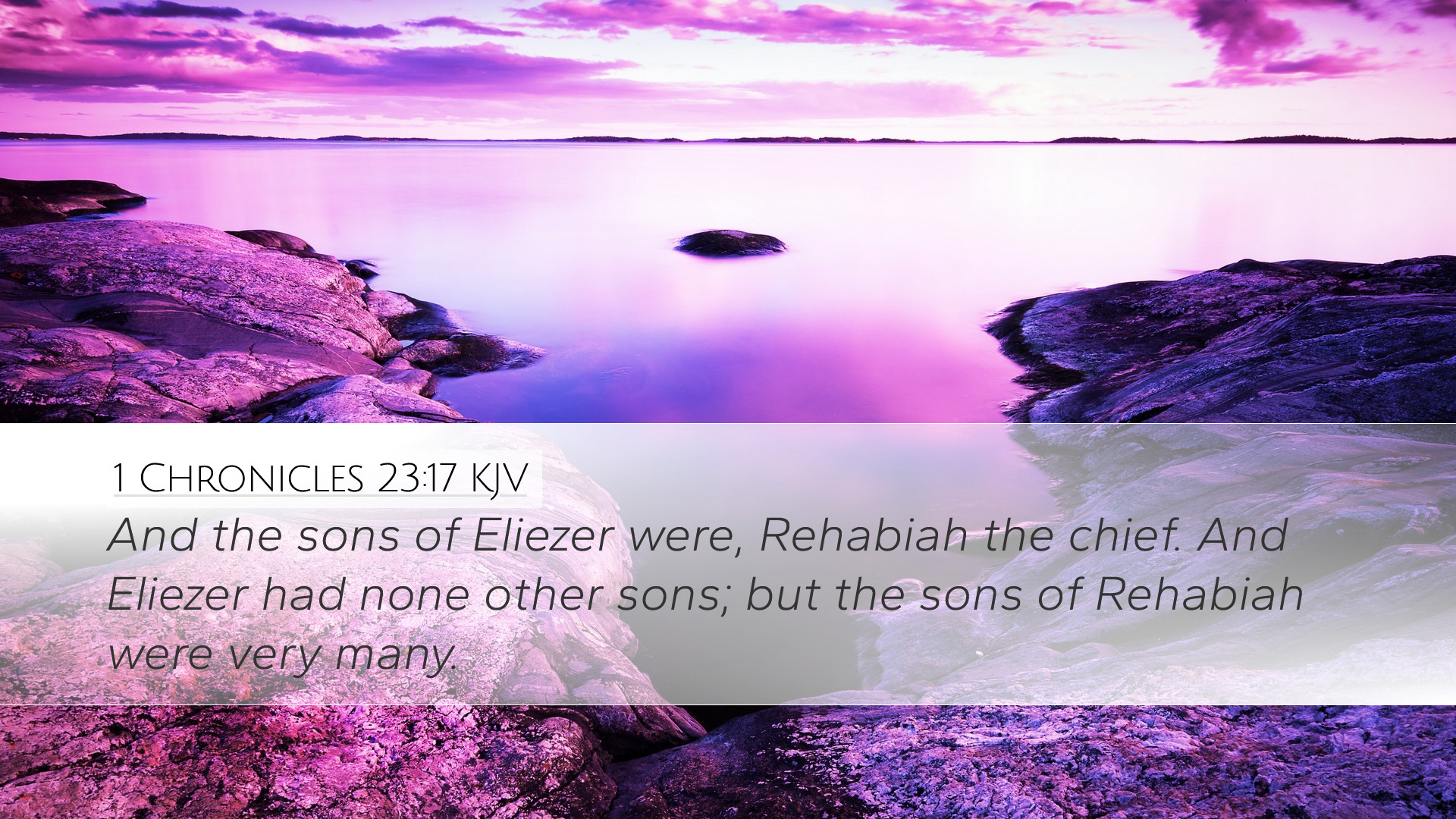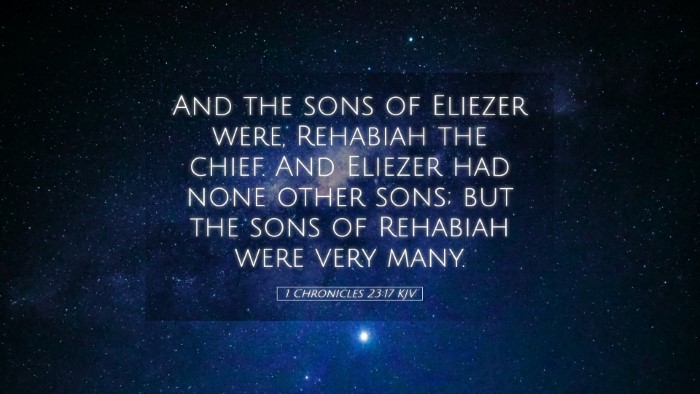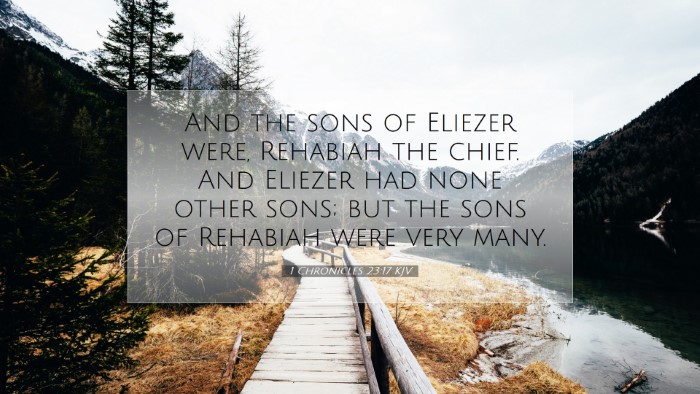Commentary on 1 Chronicles 23:17
Verse: "And the sons of Eliezer were: Rehabiah the chief, and Ahitub the second." - 1 Chronicles 23:17
Overview
This verse is part of a broader context concerning the organization and duties of the Levites after the establishment of the temple services. It outlines the lineage of the priestly families, emphasizing the significance of the lineage and its role in the worship of Yahweh.
Historical Context
Understanding the genealogies presented in the Old Testament, particularly in Chronicles, is crucial for comprehending the continuity of worship practices in ancient Israel. Chronicles serves to remind the Israelites of their covenant relationship with God, and the importance of the priesthood in maintaining this relationship throughout their history.
Insights from Matthew Henry
Matthew Henry emphasizes the importance of the priests' lineage, particularly the families of Eliezer and Ithamar, the sons of Aaron. He elucidates how these genealogies not only establish a record of God’s faithfulness through generations but also serve a functional role in determining the leadership within temple worship.
- Rehabiah as Chief: Henry notes that Rehabiah’s role illustrates God's choice and grace, highlighting that leadership is appointed by divine sovereignty.
- Importance of Order: The structured order of priests signifies God's desire for organization within worship, contrasting the chaotic practices of surrounding nations.
Insights from Albert Barnes
Albert Barnes provides a detailed exposition of the priestly order, specifically noting the responsibilities assigned to the sons of Eliezer. He interprets the reference to Rehabiah as chief as a reminder of the importance of succession and authority in spiritual matters.
- Authority in Worship: Barnes affirms that the establishment of leaders like Rehabiah underscores the authority granted to the priestly class, essential for spiritual governance.
- Symbolism of Names: He also highlights the meaning of names and their symbolic implications, which serve to deepen the understanding of God’s work through these individuals.
Insights from Adam Clarke
Adam Clarke's commentary brings forward the significance of the names and roles mentioned in this genealogical account. He points out the implications behind the names of Rehabiah and Ahitub, suggesting that the meanings associated with them reflect characteristics desirable in leaders of God’s people.
- Rehabiah: His name alludes to God’s enlargement or making room, which Clarke interprets as a reflection of God’s blessings upon those who lead.
- Ahitub: This name implies 'brother of goodness,' signifying a close relationship with divine benevolence and virtue necessary for spiritual leaders.
Theological Significance
The genealogical lists throughout Chronicles, including 1 Chronicles 23:17, are not mere historical records but serve multiple theological purposes:
- Covenantal Identity: They reinforce the covenantal identity of Israel, linking the present community to the foundational events and leaders of their faith.
- Leadership Continuity: The verse highlights the continuity of leadership and service in worship, affirming God’s unchanging call on specific families throughout generations.
- Divine Sovereignty: The appointment of chiefs like Rehabiah attests to God’s sovereignty in choosing who leads His people in worship.
Application for Today's Church
This verse and its associated commentary provide several applications relevant to pastors, students, theologians, and Bible scholars today:
- Importance of Biblical Leadership: Recognizing the principles of godly leadership rooted in humility, authority, and service can guide modern church leaders.
- Understanding Heritage: Acknowledging the spiritual heritage and continuity of faith encourages believers to stay grounded in God’s promises through past generations.
- Role of Community: Just as the Levites served in community for worship, there’s a significant call for congregational involvement in spiritual practices today.
Conclusion
In summary, 1 Chronicles 23:17 is a significant verse that not only provides genealogical information but also speaks profoundly to themes of leadership, divine appointment, and the preservation of worship identity. The insights from Matthew Henry, Albert Barnes, and Adam Clarke collectively enhance our understanding of God's ongoing work through His chosen people across generations and emphasize the importance of maintaining holiness and order in worship.


